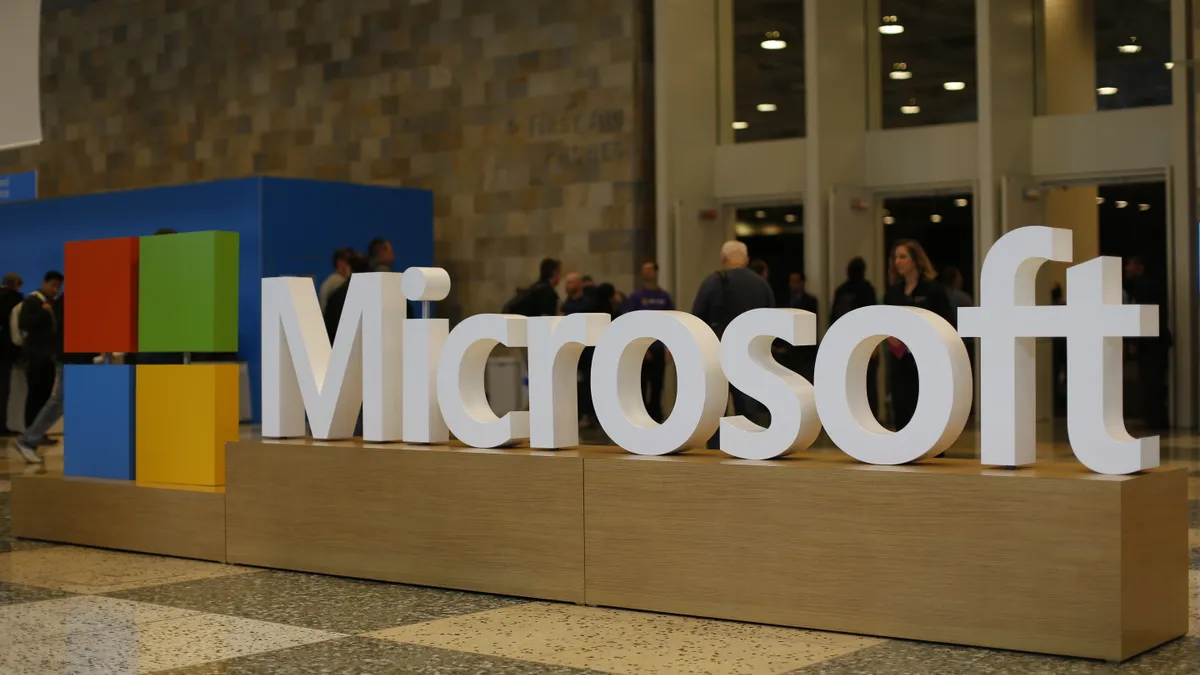Dive Brief:
- Microsoft is enhancing its customer relationship management (CRM) solutions with generative artificial intelligence (AI), according to a blog post.
- A new feature called Copilot is currently in the testing phase for the company’s Dynamics 365 suite of enterprise products. The tech, which draws on OpenAI’s tools, can help companies quickly build chatbots for customer service, among other tasks.
- The offering also helps marketers devise target customer segments and generate fresh email content for campaigns. AI’s push into the business-to-business arena, including via marketing services, continues to accelerate as the tech promises greater efficiency and speed.
Dive Insight:
Microsoft helped kick off the current AI hype cycle through its work with OpenAI, a startup it invested $10 billion in at the start of the year. Now, the Bing and Edge owner is looking to upgrade its enterprise product suite using the same type of generative technology, with a focus on improving its CRM offerings for marketers.
Nine in 10 workers hope that AI can help reduce repetitive tasks on the job, according to company research. Copilot is designed to meet that demand, assisting with busywork related to manual data entry, content generation and taking notes.
Many of AI’s practical functions to date have happened behind-the-scenes, skewing toward operational efficiency. But there are some consumer-facing applications as well.
Copilot is promoted as a way to help marketers and salespeople write better emails based on topics fed into the AI. Existing email databases and other sources from around the web can be scanned to improve the relevance of campaigns.
Virtual agents and chatbots were another use case highlighted by Microsoft. Automated assistants can be built quicker with Copilot, according to the company. Drawing on information from a brand’s website or other “knowledge bases,” Copilot can pull together contextual answers to queries over chat and email channels, along with providing an interactive chat experience.
Interactive chats are one of the most popular manifestations of generative AI at the moment thanks to OpenAI’s ChatGPT. The large language model, which launched in November, has impressed the public and investors and led to an arms race among tech platforms investing in similar products.
Microsoft has used an iteration of ChatGPT to soup up its Bing search browser, with Google — the dominant search engine — responding with an offering called Bard. Not long after Microsoft’s Copilot announcement this week, Salesforce unveiled Einstein GPT, which it claims is the “world’s first generative AI CRM technology.”
ChatGPT and other AI tools pose risks to brands, in that they can sound authoritative but are prone to error, or what are known as“hallucinations.” An early tweet promoting Bard included inaccurate information related to satellite photography. Longer conversations with AI can also lead to off-putting responses, which has led some platforms to limit interactions.
Despite the challenges, generative AI is quickly jumping from the experimental phase into the enterprise realm. OpenAI last week made ChatGPT available to companies via API, meaning marketers and platforms can more easily integrate the tech into their own apps and websites to support features like chatbots and shopping assistants. Snap, Instacart and Shopify are among some of the early adopters.
In the announcement, Microsoft teased a future AI development for March 16 related to productivity.















